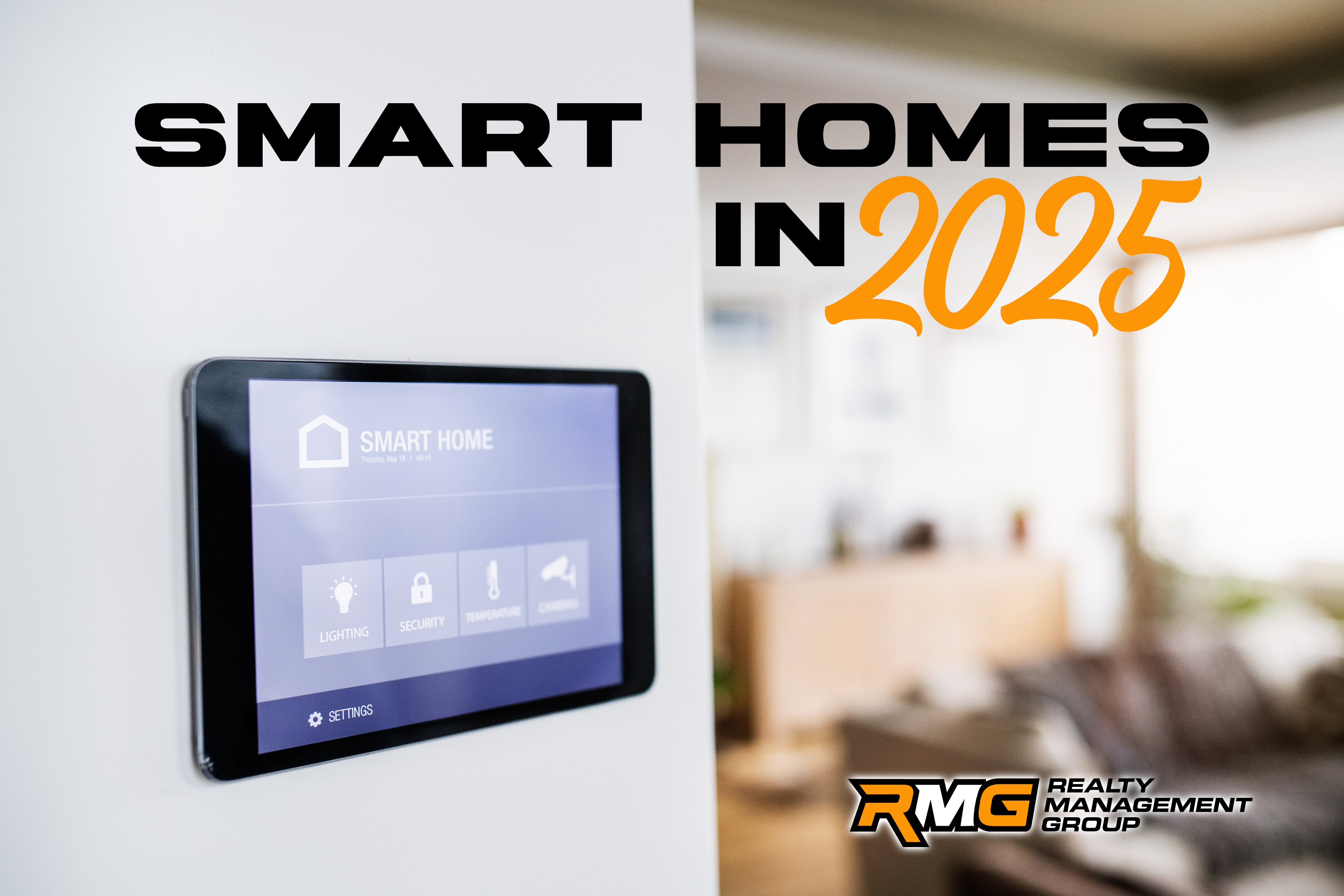In today’s market, smart homes are no longer a bonus — they're a must-have for a lot of people.
I was surprised to see a survey of 500 renters in the US done by Rently in 2025 reveal that 60% of respondents would choose smart home features over things like a pool or a gym if it meant they'd pay less rent and get better tech.
It’s clear that renters’ priorities are shifting, and it’s worth taking note of what they want in an home
The Top Smart Home Trends for 2025
When it comes to home in 2025, there are some trends you should know about. For starters, these trends are a big deal — not just for renters, but for landlords too.
If you're a property pro, you'll want to stay on top of them to keep your buildings in demand.
Out with Pools, In with Security
Take amenities, for instance. It turns out most renters don’t care much about pools or state-of-the-art gyms anymore. What they really want is safety and convenience.
A whopping 58% would rather have locks, thermostats, and cameras in their homes.
It makes sense. Who doesn’t want to feel safe and secure in their home?
Smart Tech Is No Longer Optional
That’s not all. A majority — 65% — think that smart tech makes a home way more appealing. In fact, nearly a third of them actively seek out homes with this kind of tech.
Most people these days — 54% — think smart locks, thermostats, and security cameras should come standard.
48% expect video intercoms or doorbells
45% want smart lighting
39% say smart appliances are a must
Why Renters Want Smart Tech
Interestingly, for a lot of renters, smart home tech is about more than just convenience. It’s about feeling secure.
41% want tech for safety
18% care about saving energy
11% are in it for convenience
A simple pie chart could illustrate how these motivations stack up:
🟦 Safety – 41%
🟨 Energy Savings – 18%
🟥 Convenience – 11%
Renters Are Willing to Pay for It
Smart home features aren’t extras — they genuinely boost rental value.
65% of renters would pay more in rent for a place with smart home tech
52% would pay ~$20/month more
7% would pay over $80 more
It’s not just about rent either. 77% would consider signing a 2-year or longer lease if the place had smart tech.
The Smart Home Market Is Booming
Investing in infrastructure can really pay off. The smart home market is growing fast:
$3.61 billion in 2024
Expected to reach $4.16 billion in 2025
That’s a 15.4% increase
Projected to hit $6.7 billion by 2029
Key drivers include:
A focus on health
The shift to remote work
Urbanization trends
And it doesn’t stop there — SmartRent alone is forecasted to hit $13 billion by 2030.
The Future of Living: Seamless, Healthy, Secure
What does the future of living actually look like?
By 2025, it’s not just about convenience. Wellness tech is taking over:
Lighting that regulates your sleep
Advanced air filtration systems
Telehealth integrations
Then there’s "invisible tech" — devices integrated into your decor:
Motorized shades
Art-frame TVs
Mood-based ambient lighting
Even security systems are evolving. They can:
Detect pets and objects
Predict crime
Feature shutters on cameras for privacy
Aging in Place with Smart Tech
Smart home tech is also helping people age in place:
Remote monitoring
Emergency systems
Voice controls
AI-driven energy optimization (reduces use by up to 13%)
This makes homes more efficient and sustainable.
Sustainable Living: A Renter’s Priority
Today’s tenants want to go green. That’s why features like:
Smart meters
Water tracking
Waste management
…are in demand. They lower utility bills and support sustainability goals.
But There Are Concerns…
Automation comes with responsibility.
35% of renters worry about being watched
32% fear smart locks could fail in emergencies
31% are concerned about system malfunctions
To ease these concerns, landlords need to be:
Transparent about data handling
Reliable with system upkeep
Open in communication
Trust is key.
Home Design for 2025 and Beyond
Smart features are now part of the living experience:
Mood-enhancing lighting
Natural textures and greenery
Multi-use spaces like “pocket offices”
Wellness-oriented bathrooms
Tech is hidden and sleek, blending form and function.
How Property Managers Can Stay Ahead
So, what should landlords and developers do?
Smart Features That Are Now Essentials:
Smart locks
Energy-efficient thermostats
Security cameras
Smart lighting
These aren’t just "nice-to-haves" — they can boost occupancy and rent, and encourage lease renewals.
Marketing Your Smart Home
For marketers and leasing agents, it’s crucial to highlight the tech.
Use listing phrases like:
“Move-in ready with smart security and energy-saving thermostats.”
Also, get creative:
Analyze renter feedback
Showcase the most desired features
Use video walkthroughs or digital tours to emphasize convenience
The Bottom Line
People are willing to compromise on amenities if they get the features they really want.
Smart homes are no longer optional — they’re the norm.
What matters most:
Safety
Sustainability
Comfort
Peace of mind
When landlords get it right — providing smart, secure, healthy spaces — renters stick around, and profits follow.
Why Choose Realty Management Group?
At Realty Management Group, we combine local San Diego expertise with data-driven property management to maximize rent, reduce vacancy, and protect your investment.
- Data-backed pricing: market comps, demand trends, and seasonality built into every rent recommendation.
- Tenant screening: credit, background, income, and rental history checks to reduce risk and turnover.
- Leasing & marketing: professional photos, multi-channel listings, and responsive tenant communications.
- Maintenance coordination 24/7: reliable vendors, preventative schedules, and transparent updates.
- Compliance & paperwork: full adherence to California landlord-tenant law, leases, and city regulations.
- Owner reporting: clear statements, cash flow insights, and tax-ready documentation.
Contact Realty Management Group
📞 (619) 456-0000
📧 info@choosermg.com
🌐 www.choosermg.com


